Embracing Our Ghosts: In Conversation with Martin Julien & Monice Peter
The Man that Got Away (A Special Appearance) tells artist Martin Julien’s story about growing up as an only child in a unique family — one with a lesbian mother and a gay father — during the 60s, 70s, and 80s.
Julien, the writer and one of the show’s three performers, describes it as the story of his “gay growing up — not growing up gay.” Meanwhile, Monice Peter, the assistant director and dramaturg, categorizes it as “a story of a family — not a family story.” She went on to explain in an interview that it’s not specifically oriented for a young audience. The Man that Got Away extends beyond Julien’s personal experience to explore gaps in cultural memory, politics of representation, as well as the dynamics of theatrical form.
What began as a one-person cabaret has transformed since Julien first pitched the show in 2018.
“Due to the complexities of the show as we worked on it, the show developed into much more than the traditional cabaret form that features semi-confessional stories from the past connected with songs,” he told me. “It became a full-length play that incorporates various aspects of theatre-making, including other forms of media and dramaturgical frameworks. The traces of cabaret form are still deeply embedded in it, but they are constantly subverted. The confessional one-person cabaret form was the germinal idea that helped us conceptualize the show, but we decided to go a lot deeper.”
What elements from the cabaret production remain? Well, everyone sings. There’s still a piano player who plays show tunes, though in this version of the show, he’s a character rather than an accompaniest. And for this production, the creative team has introduced a third character: the ghost of Judy Garland.
“As we developed the show, [director Peter Hinton-Davis] and I realized that there are so many ghosts in the story.” Julien told me. “The ghost of memory. The ghost of my father, who died of AIDs in 1988; the ghost of my mother, who died of lung cancer in 2012. And the ghosts of my youth. We started to consider the idea of including Judy Garland as a ghost. Eventually, we decided to use only her songs, which helped integrate and construct the piece.”
Judy Garland, after all, is known as one of the ultimate cabaret performers of all-time as well as an icon for the gay community. It’s no surprise that she was important in Julien’s father’s life — but it might surprise us to know that she was important to Julien’s mother as well.
“I was raised on musical theatre and cabaret shows — by Liberace, Peggy Lee, Debbie Reynolds, and Harry Belafonte.” Julien told me. “Here is my story. And I’m going to incorporate show tunes because they are a part of my upbringing, part of my queer story.”
But why tell a story from decades ago now? What prompted Julien to tell his story in 2022?
“In 2018, the iconic gay play from the 60s, The Boys in the Band, was revived on Broadway,” he explained. “I realized that so many reviewers and commentators of the current generation had no idea of what The Boys in the Band was. And I went, WOW! I was raised in that environment: I knew about it when I was 12. And I realized there is a yawning gap between the pre-AIDs semi-closeted gay culture, the post-AIDs LGBQT+ culture, and the rise of identity politics. I thought, I have something to say about this!”
It wasn’t just the recent revival of The Boys in the Band that prompted Julien to stage his story: he was also inspired by the pandemic.
“When COVID came around,” he said, “all the public discourse was about how we haven’t seen an epidemic like this since the influenza of 1919. [Hinton-Davis] and I said “No! There was another epidemic. It was repressed then, it was condemned then. It was horrible in the early years then. And it is still being repressed.’ This became another important provocation as well.”
And it wasn’t just the cultural amnesia around HIV/AIDs. Julien related to me, “another great motivator was discovering that the ghost of my father presented it to me when I started teaching musical theatre at Sheridan College.”
He went on, “I don’t mean this in any spiritualized way. I just felt that he was present as I was teaching the diverse students of a new generation of people, many generations removed from my father. And my dad was there!”
I can enter this piece just from where I am and from who I am. Anybody who comes to see the show can enter the piece just as they are.
Monice Peter
Peter also recognizes the value in telling these stories because of the lack of knowledge around the impact of AIDs on the gay community and gay culture.
“I accessed this work by considering that it could be a historical document of stories that I had never heard, witnessed, read, or seen,” she explained. “None of these stories were part of my growing up. I was hooked immediately by just how many stories of this time have not yet been told. It’s a piece of history. It’s important. It shapes culture and time. It’s part of us. I am inspired to ensure that these stories get told.”
As assistant director and dramaturg, Peter has encountered unique challenges in collaborating with an artist who is telling his personal story.
“I think I have a really interesting position. It’s not made up,” she said. “These are Martin’s lived experiences. And so, I approach this work with great care and understanding. I have a knack for asking questions with compassion. Although it is a cabaret confessional, a self-portrait, a ‘one-person’ show, it’s still a piece of theater. It needs to be crafted. And it is personal, but it’s not personal. It’s supposed to be performed. And we want to give the audience the best performance. Therefore we have to engage in really hard decisions, such as, ‘can we cut [this story, despite how much it means to you]?’ And, ‘how do you say that gently?’ Or, ‘that story is 12 pages long. But can [we] fit it into the play because it needs to be said?’”
Peter joined the production team when Hinton-Davis and Julien decided that the ghost of Judy Garland would be played by a Black woman. They felt it was important to include her perspective on the character, particularly through the show’s dramaturgical process.
“The death of George Floyd and [the Black Lives Matter movement] compelled us to open up our thinking of casting and representation,” Julien told me. “We did not want to put an imitation of Judy Garland onstage. That went against what we wanted to do. We want to present Judy Garland as being accessible to anyone and everyone. That’s what inspired us to consider a Black woman to play this role. And that became a part of our exploration and dramaturgy as well. It became fundamental to the way we were exploring arrival, disappearance, and representation to collaborate with a person in the theatre who has a very informed, personal, and political perspective on representing Judy Garland as a Black woman.”
In this staging of the show, Tat Austrie will take on the role of Judy Garland. But in addition to the ghostly representation of the beloved performer, what should an audience expect from this genre-defying, unusual, and surprising production?
“Honestly, in many ways I want the audience to approach it with no expectations,” Julien confessed. “The play is so intersectional in terms of generations and in terms of identities. Purposely. Every person that comes to witness the show is going to be coming with different knowledge. And so I’m not attempting to prognosticate how it will be received. I don’t know what this means to you, or how you would process it, or how it will resonate.”
Peter agrees. “I would definitely add to the fact that this piece will resonate so deeply with so many groups of people,” she said.
“At the crux of it, it is a family story,” Peter continued. “It’s so personal that it’s universal, in my opinion. I don’t resonate with having a gay father and a lesbian mother, but on other levels I understand. I can enter this piece just from where I am and from who I am. Anybody who comes to see the show can enter the piece just as they are.”






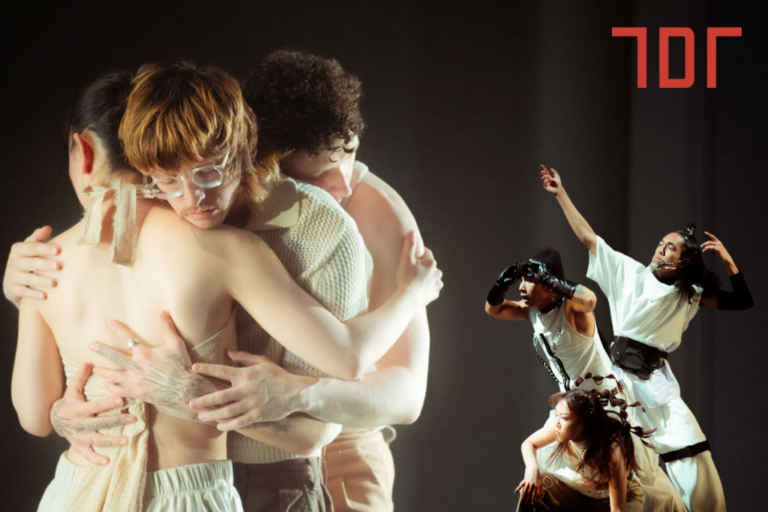

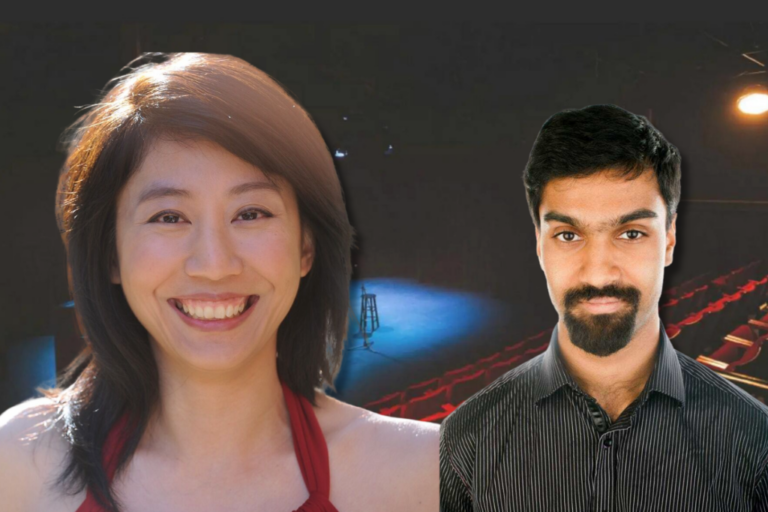

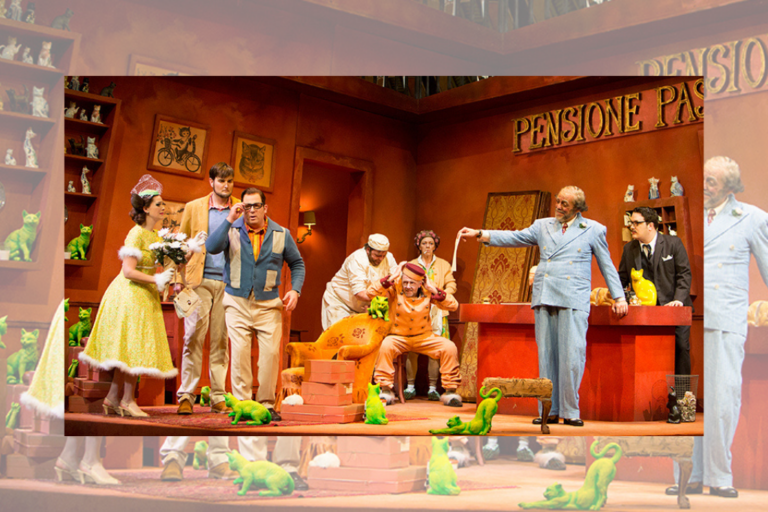
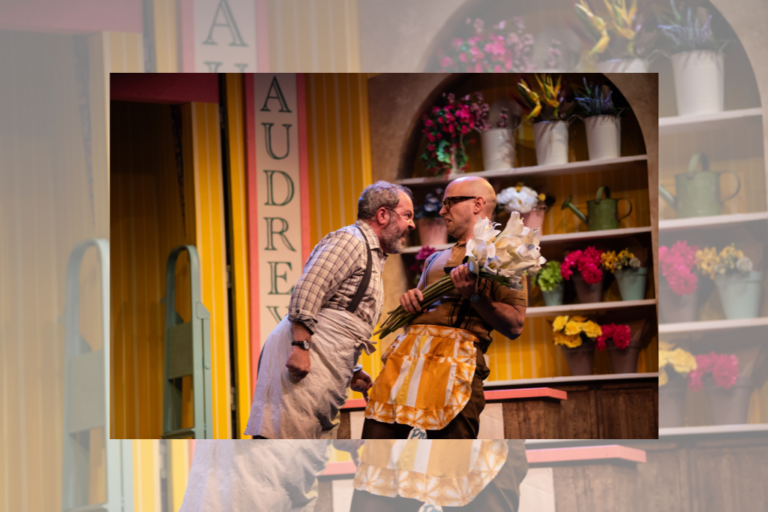
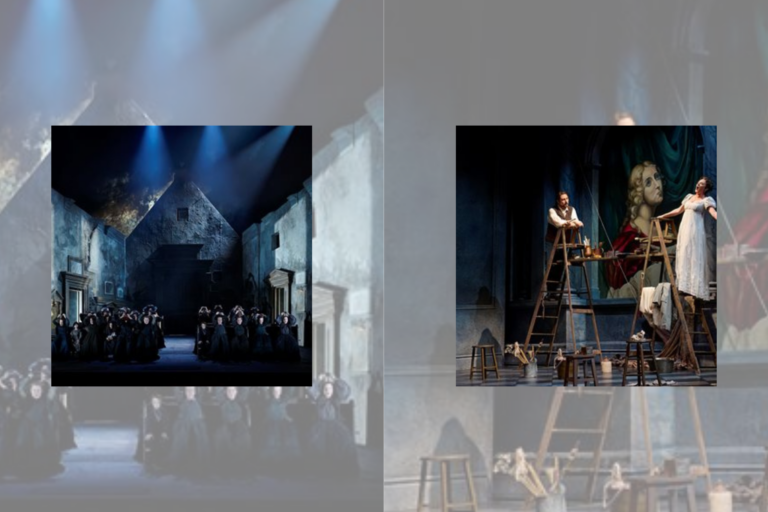

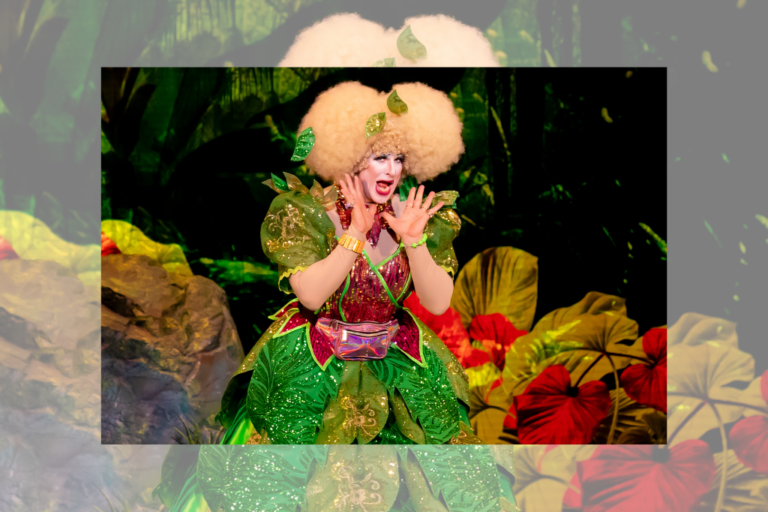
Comments